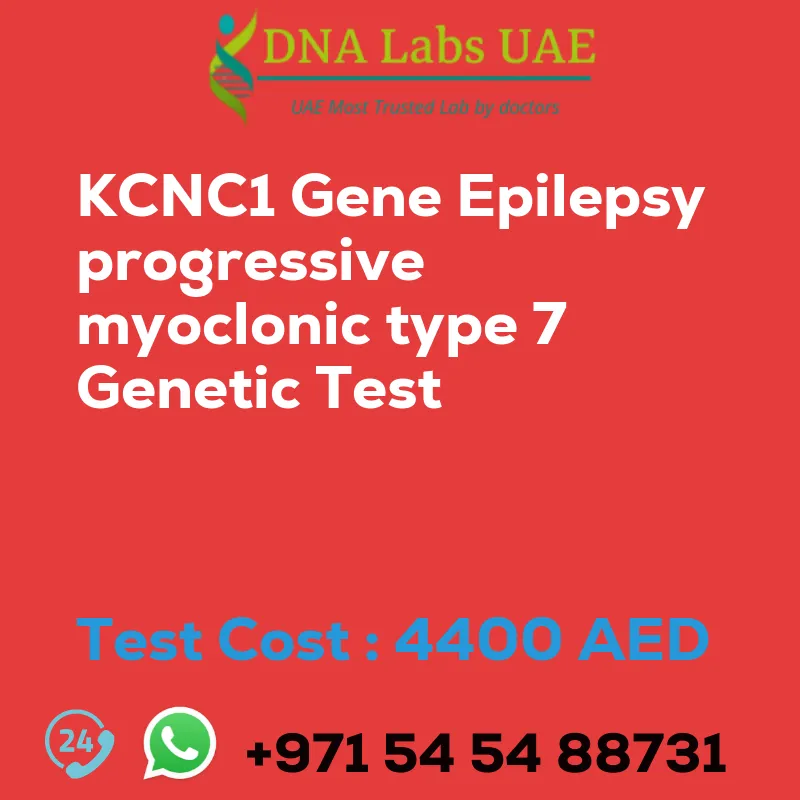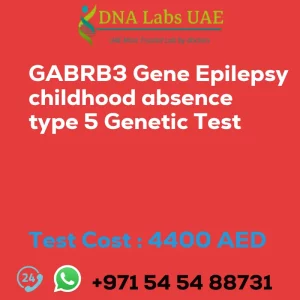KCNC1 Gene Epilepsy progressive myoclonic type 7 Genetic Test
Test Details
The KCNC1 gene is associated with progressive myoclonic epilepsy type 7, which is a rare form of epilepsy characterized by muscle jerks, seizures, and neurological deterioration. The NGS genetic test is a diagnostic tool that analyzes the DNA sequence of the KCNC1 gene to identify any mutations or variations that may be causing the disease. This test can help confirm a diagnosis, identify carriers of the disease, and provide information about the risk of passing the condition on to future generations. It can also aid in developing personalized treatment plans for affected individuals.
Test Components
- Price: 4400.0 AED
Sample Condition
Blood or Extracted DNA or One drop Blood on FTA Card
Report Delivery
3 to 4 Weeks
Method
NGS Technology
Test Type
Neurological Disorders
Doctor
Neurologist
Test Department
Genetics
Pre Test Information
Clinical History of Patient who is going for KCNC1 Gene Epilepsy, progressive myoclonic type 7 NGS Genetic DNA Test
A Genetic Counselling session to draw a pedigree chart of family members affected with KCNC1 Gene Epilepsy, progressive myoclonic type 7
| Test Name | KCNC1 Gene Epilepsy progressive myoclonic type 7 Genetic Test |
|---|---|
| Components | |
| Price | 4400.0 AED |
| Sample Condition | Blood or Extracted DNA or One drop Blood on FTA Card o |
| Report Delivery | 3 to 4 Weeks |
| Method | NGS Technology |
| Test type | Neurological Disorders |
| Doctor | Neurologist |
| Test Department: | Genetics |
| Pre Test Information | Clinical History of Patient who is going for KCNC1 Gene Epilepsy, progressive myoclonic type 7 NGS Genetic DNA Test A Genetic Counselling session to draw a pedigree chart of family members affected with KCNC1 Gene Epilepsy, progressive myoclonic type 7 |
| Test Details |
The KCNC1 gene is associated with progressive myoclonic epilepsy type 7, which is a rare form of epilepsy characterized by muscle jerks, seizures, and neurological deterioration. The NGS genetic test is a diagnostic tool that analyzes the DNA sequence of the KCNC1 gene to identify any mutations or variations that may be causing the disease. This test can help confirm a diagnosis, identify carriers of the disease, and provide information about the risk of passing the condition on to future generations. It can also aid in developing personalized treatment plans for affected individuals. |







